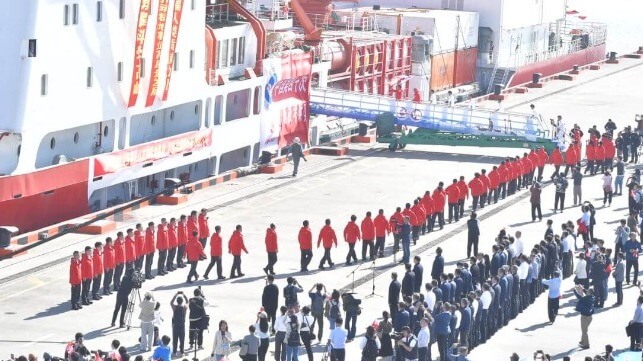China Launches Expedition to Build Fifth Antarctic Base

After years of preparation, China will this week start the construction of its fifth Antarctic research station. According to Chinese state media, a 32-member Chinese research team have already arrived at Inexpressible Island in Terra Nova Bay of the Ross Sea, which is the proposed site for the research station.
An additional crew is expected to arrive on December 7 on China’s icebreaker Xuelong 2. The vessel will be accompanied by the cargo ship Tian Hui, which is carrying construction materials for the new research station.
The construction of the fifth base will be undertaken as part of China’s 40th Antarctic expedition. The 39th expedition was completed in April, with primary study areas including an investigation on the impacts of climate change in the Southern Ocean.
In an earlier interview to the media, the former director of the PRIC Dr. Huigen Yang said establishment of the fifth Antarctic base would help to fill in the gap of conducting scientific research in the Ross Sea and enhance China’s capacity in understanding Antarctica.

that matters most
Get the latest maritime news delivered to your inbox daily.
The station is in line wih Beijing’s broader ambitions for the planet’s polar regions. A 2017 white paper on Antarctic activities published by China’s Ministry of Natural Resources stated that Antarctica is a “new space of global environment and resources that is of great significance to the process of human development.” China has also shown a growing interest in the Arctic, including the transport potential of the Northern Sea Route north of Siberia.
Western analysts have warned that China's fifth base could also be used for surveillance. It will include a satellite ground station, which could be used for eavesdropping on other nations' satellite communications, according to the Center for Strategic and International Studies.
